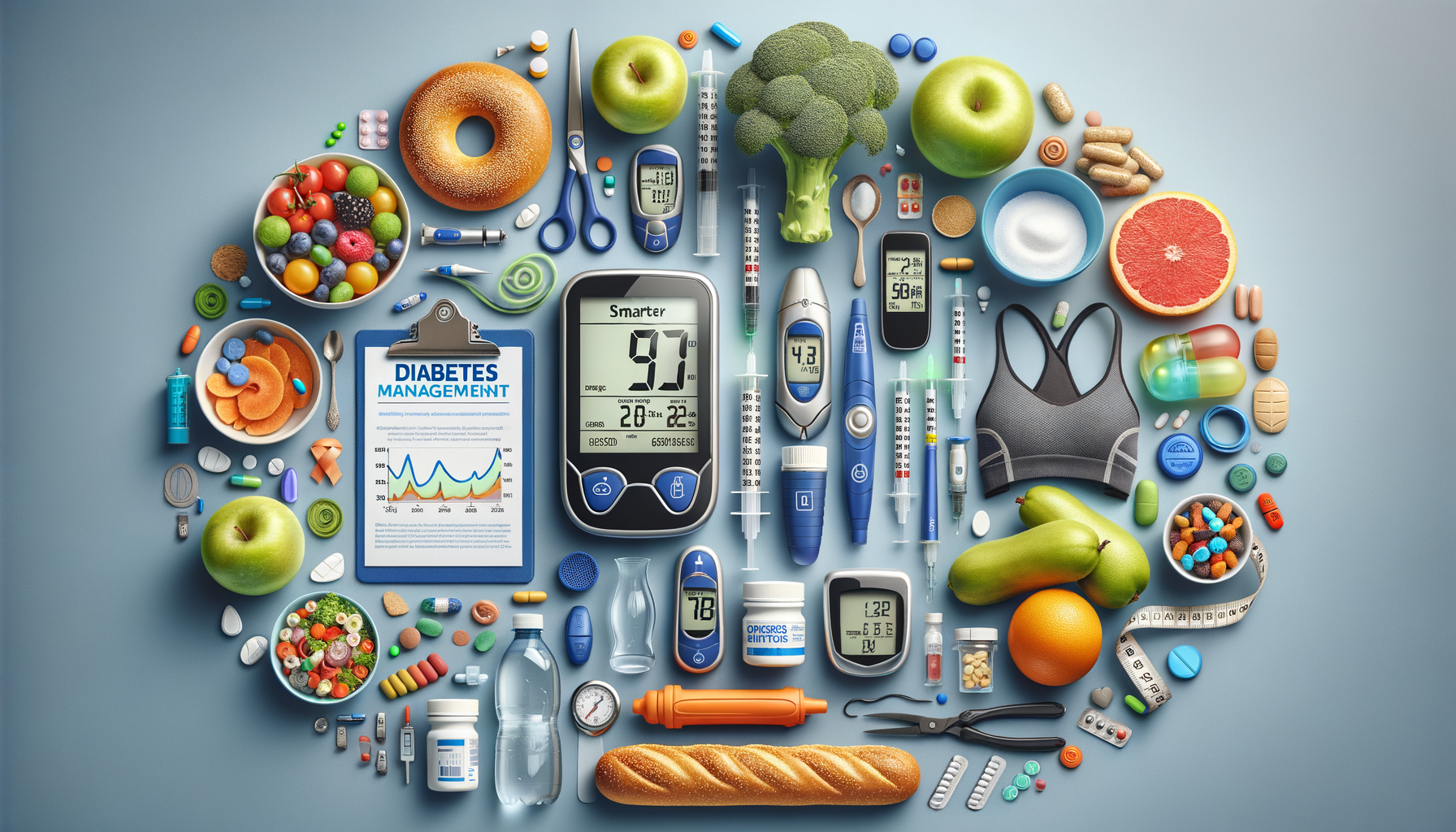Understanding Diabetes: A Chronic Challenge
Diabetes is a chronic health condition that affects how your body turns food into energy. It is primarily categorized into two types: Type 1 and Type 2. While Type 1 diabetes is often diagnosed in children and young adults and is characterized by the body’s inability to produce insulin, Type 2 diabetes is more common and typically occurs in adults, often linked to lifestyle factors. According to the International Diabetes Federation, approximately 537 million adults were living with diabetes in 2021, a figure projected to rise significantly in the coming decades.
The management of diabetes is crucial as it can lead to serious health complications if left uncontrolled. These include cardiovascular diseases, nerve damage, kidney failure, and vision problems. Therefore, understanding diabetes and its implications is the first step towards effective management.
Managing diabetes involves a delicate balance of maintaining blood sugar levels, which requires a comprehensive approach. This includes dietary modifications, regular physical activity, medication, and continuous monitoring of blood glucose levels. Each of these components plays a vital role in keeping diabetes under control and preventing complications.
Dietary Management: Fueling the Body Right
Diet plays a pivotal role in managing diabetes, as it directly impacts blood sugar levels. A balanced diet for diabetes management includes a variety of nutrients while keeping carbohydrates in check. The goal is to maintain a steady blood sugar level without extreme highs or lows.
Here are some dietary strategies for effective diabetes management:
- Carbohydrate Counting: Understanding the carbohydrate content of foods helps in planning meals and managing blood sugar spikes.
- Portion Control: Eating smaller, more frequent meals can prevent blood sugar fluctuations.
- Choosing Whole Grains: Opt for whole grains over refined grains to improve blood sugar control.
- Incorporating Fiber: Fiber-rich foods help slow down the absorption of sugar, leading to more stable blood sugar levels.
Additionally, it is important to limit the intake of sugary beverages and processed foods. Instead, focus on lean proteins, healthy fats, and plenty of fruits and vegetables. Consulting with a registered dietitian can provide personalized dietary advice tailored to individual needs and preferences.
Exercise: An Essential Component
Regular physical activity is another cornerstone of diabetes management. Exercise helps improve insulin sensitivity, allowing the body to use glucose more effectively. It also aids in weight management, reduces the risk of cardiovascular diseases, and enhances overall well-being.
For individuals with diabetes, both aerobic exercises and resistance training are beneficial. Aerobic exercises such as walking, swimming, or cycling increase heart rate and improve cardiovascular health. Resistance training, on the other hand, helps build muscle mass, which can further enhance insulin sensitivity.
Experts recommend at least 150 minutes of moderate-intensity aerobic exercise per week, combined with two sessions of resistance training. However, it is crucial to consult a healthcare provider before starting any exercise regimen, especially for those with existing health conditions.
Incorporating physical activity into daily routines doesn’t have to be daunting. Simple changes like taking the stairs instead of the elevator, walking during lunch breaks, or engaging in active hobbies can make a significant difference in managing diabetes.
Medication and Monitoring: Staying on Track
While lifestyle changes are fundamental, medication is often necessary for effective diabetes management. Various medications are available to help control blood sugar levels, including insulin and oral hypoglycemic agents. The choice of medication depends on the type of diabetes, individual health conditions, and how well blood sugar levels are controlled.
Regular monitoring of blood glucose levels is essential for managing diabetes. It provides real-time feedback on how the body responds to diet, exercise, and medication. Self-monitoring can be done using a glucometer, which helps in making informed decisions about food intake, physical activity, and medication adjustments.
Moreover, continuous glucose monitors (CGMs) offer a more comprehensive view of blood sugar trends throughout the day. They can alert users to potential highs and lows, allowing for timely interventions. Collaborating with healthcare providers to establish a monitoring routine and medication plan is crucial for maintaining optimal blood sugar control.
Emotional and Psychological Support: The Human Element
Managing diabetes is not just a physical challenge; it also involves emotional and psychological aspects. Living with a chronic condition can be overwhelming, leading to stress, anxiety, and even depression. Thus, addressing the emotional well-being of individuals with diabetes is an integral part of comprehensive care.
Support from family, friends, and healthcare professionals can make a significant difference. Joining support groups or participating in diabetes education programs can provide a sense of community and shared experience. These platforms offer opportunities to learn from others, share challenges, and celebrate successes.
Additionally, mental health professionals can offer strategies to cope with the emotional burden of diabetes. Techniques such as mindfulness, cognitive-behavioral therapy, and stress management can enhance resilience and improve quality of life.
Ultimately, a holistic approach that encompasses physical, emotional, and psychological support is essential for effective diabetes management. By integrating these elements, individuals can lead fulfilling lives while keeping their condition under control.




Leave a Reply